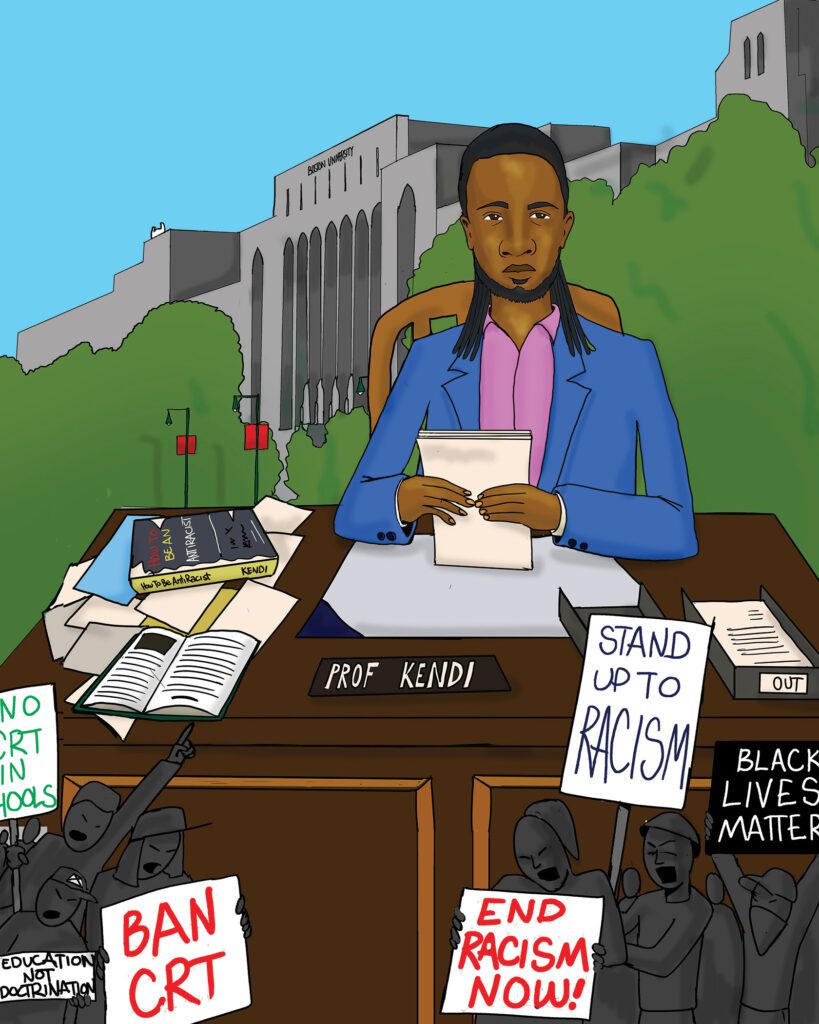
The Center for Antiracist Research at Boston University launched with nearly $55 million in funding raised on the heels of George Floyd’s murder. Ibram X. Kendi, whom BU lured away from American University, founded the Center in 2020 and has been its director.
Kendi is a serious scholar, best known for authoring “Stamped from the Beginning,” which won a National Book Award, and “How to Be an Antiracist.” The latter book, published in 2019, popularized the term “anti-racist” and the idea that simply not being racist is insufficient. Everyone needs to be actively opposing racism to excavate it from this country.
His promotion of that idea put him on a collision course with the conservative Republicans in Florida and other states who want to rewrite this country’s history and outlaw teaching our children the truth about the past — truth that needs to be known for the country to move forward and live up to its civic creed of equality for all.
Now, three years after the Center’s launch, Kendi has made major changes. Many staffers have been laid off in a restructuring. Instead of staff conducting research on aspects of racism, academic fellows will be brought in to undertake projects. The Center is now publishing its online newspaper, The Emancipator, on its own after a two-year partnership with the Boston Globe ended in March.
Amid the frenzy of the first announcement of the changes, BU said it was investigating the center’s management under Kendi. What has become clear so far is that much of the remaining millions raised for the Center are in an endowment held by the university. No evidence has surfaced that any of the Center’s funds have been mishandled.
Former staffers have raised concerns about Kendi’s management style. Viewing the Center as his thing, he appears to have been unwilling to delegate authority in his absence when he was preoccupied with multiple projects, including an ESPN special on racism in sports called “Skin in the Game.” His critics indicated Kendi was spread too thin, at the least.
Though I have only read these complaints from former staffers in published news stories, it’s not hard to believe there could be some truth in what they say. Academics tend to be solo operators, doing their research on their own or maybe with one or two assistants, if they are fortunate. Kendi had founded a similar center at American University, but it does appear to have been as large. What experience did he have managing 40 people as he did at BU?
It is often a mistake for any startup, which the BU Center was, to expand too rapidly. A steady expansion, making serial adjustments along the way, is a more manageable way to proceed. It is not uncommon for a new enterprise with grand ambitions to face some growing pains, retrench, right itself and do just fine in the long run.
Knowing that context, everyone should have some patience and understanding and give Kendi the benefit of the doubt as he takes on a problem so immense that it has been unsolved for centuries. What irks is the unspoken assumption in some media coverage that goes to an old stereotype that Black people cannot handle large sums of money or account for its expenditure.
Kendi’s Center for Antiracist Research may have fallen short of expectations in the short run. But three years is about an hour in academic research time. BU would do itself and the country a favor by providing Kendi with management support and possibly training.
Everyone should acknowledge the courage it took for a Black man to take on this huge task. Unearthing and illuminating the roots and ramifications of racism is a necessary prerequisite for its elimination. Kendi did not start that work, but maybe he can finish it. In a different era, a young Martin Luther King Jr. vowed to “kill Jim Crow.”
Legal, statutory segregation is dead. Let’s give Ibram Kendi a chance to do away with its successor, structural racism or institutional racism or whatever you want to call it. This country needs all the good help it can find to wipe out this longstanding affliction.







